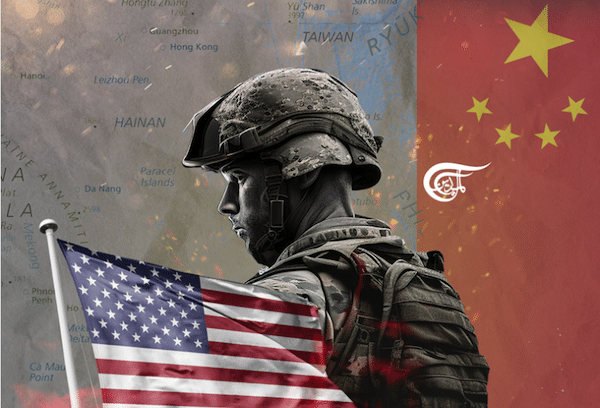During their trips to China, the U.S. Secretary of State Antony Blinken and Treasury Secretary Janet Yellen reassured Beijing that Washington did not want to contain it economically and that there was “ample room” for engagement with China in trade, investment, and other critical issues, urging closer communication to address disagreements through dialogue.
Around the same time Yellen was ensuring her Chinese counterparts of protecting the critical relationship, the U.S. Assistant Secretary for East Asia and Pacific Affairs Daniel Kritenbrink stressed on working with the Association of Southeast Asian Nations (ASEAN) countries to “push back on behavior…including the many irresponsible acts…carried out by China” in the South China Sea (SCS).
The Chinese foreign ministry said that on the sidelines of a series of ASEAN meetings in Jakarta, Blinken and China’s foreign policy chief Wang Yi agreed to maintain communication. The U.S. State Department readout noted the meeting was part of the efforts “to responsibly manage competition by reducing the risk of misperception and miscalculation.”
But America’s accusations of China’s routine harassment of claimant state vessels, promotion of a “free and open Indo-Pacific” and freedom of navigation of operations and military drills in the SCS and around the Taiwan Strait are a persistent threat to the U.S. commitment to prevent any miscalculation and put a floor to the bilateral relationship.
In the past, senior U.S. officials and military officers have vowed to “fight tonight” if needed to defend the country’s interests across Asia-Pacific, referring to Chinese claims in the SCS as “preposterous”. Washington’s continuous support of the SCS Arbitral Tribunal ruling, which Beijing says violates the principle of state consent, the UN Convention on the Law of the Sea and international law, heightens such risks.
The militarization of the region could at any time make matters worse with either of the sides twisting the knife; alliances such as the AUKUS and the Quad as well as NATO’s expansion to East Asia, in an attempt to blockade China militarily, may cultivate a conflict (leading into a nuclear war), something ASEAN is seriously concerned about.
China’s worries about U.S. defense engagement in the region aren’t inordinate completely and account for some historical factors. Unfortunately, the U.S. has an extensive history of initiating and bankrolling wars and conflicts. According to the Congressional Research Service, there were hundreds of instances in which America had deployed its military abroad to fuel military conflicts and promote its interests including imposing 11 declared and several undeclared wars on East and Southeast Asian and European countries such as Japan, Korea, Vietnam, France, Germany, Italy and the Great Britain.
The U.S. has also been involved in a number of unauthorized hostilities, more than the Pentagon disclosed to Congress, through armed intervention, proxy forces and airstrikes, as per Brennan Center for Justice. Quite a few countries in the Global South didn’t condemn the Russian military operation in Ukraine for they thought the U.S.-led NATO’s expansion to Eastern Europe had triggered this chaos that is affecting nearly every person living on the planet.
According to various studies, the U.S. has more than 171,000 troops deployed overseas with about 750 bases in at least 80 countries. Japan and South Korea have the first- and third-largest U.S. military footprints in East Asia; America’s four new military bases in the Philippines, to gain greater access to the SCS and Taiwan, in addition to an estimated 313 bases in East Asia revalidate China’s concerns about its containment as well as underline why the U.S. is chanting the mantra of maintaining “open lines of communication” with China.
In a “quite unusual” meeting, the Chinese ambassador to the U.S. Xie Feng visited the Pentagon to hold talks with the top U.S. defense official for Asia, Ely Ratner, in an effort to bring the bilateral and military relations back on track. This signals Beijing’s willingness to revive mil-to-mil hotlines and urges Washington to do more to reduce the risk of miscalculation around the SCS.

